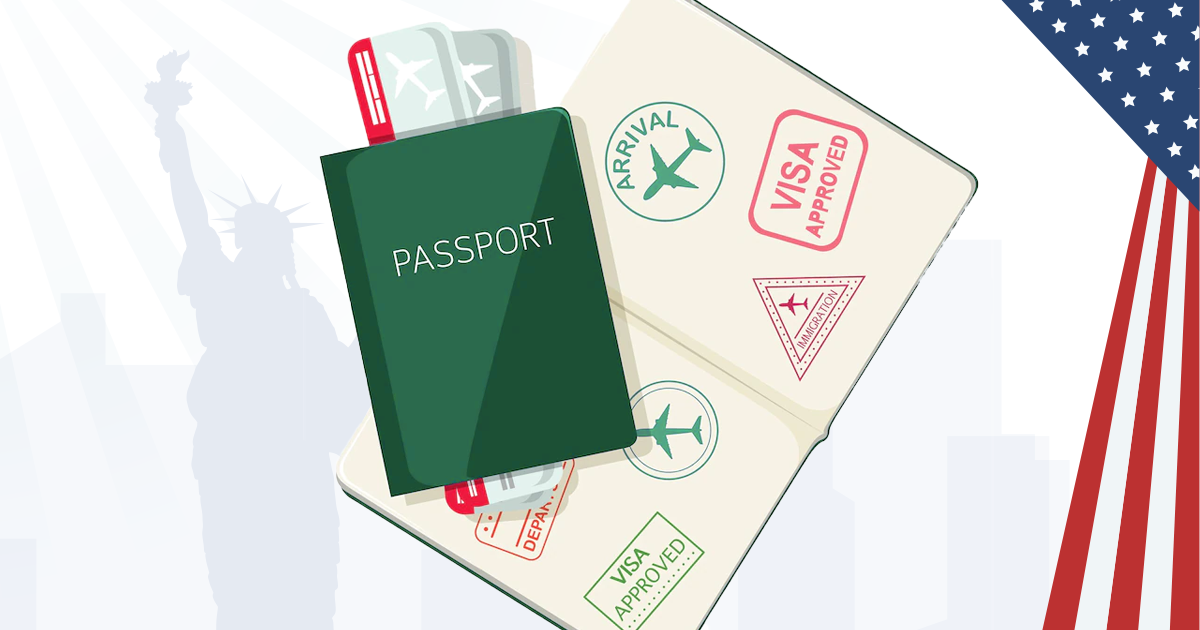
What is F1 Student Visa in USA?
An F1 Student Visa in the USA is a non-immigrant visa issued to students who wish to pursue their studies in the United States. This visa is specifically designed for international students who intend to attend educational institutions such as universities, colleges, private elementary schools, high schools, language training programs, or any other academic institution in the US. Upon receiving acceptance from a qualifying institution, students can apply for an F1 visa, granting them permission to study in the USA.
Qualifications for an F1 Visa
Here are the eligibility criteria for securing an F1 visa to pursue studies in the United States, outlined in the table below.| Qualification | Description |
|---|---|
| Acceptance into a SEVP-Certified School | Must have been accepted into a U.S. institution certified by SEVP (Student and Exchange Visitor Program). |
| Sufficient Financial Resources | Demonstrate adequate funds to cover tuition fees, living expenses, and other educational costs during your stay in the U.S. |
| Intent to Return Home | Show strong ties to your home country and intent to return after completing studies. |
| Nonimmigrant Intent | Prove intention to stay temporarily for study purposes, with no intention of immigrating to the U.S. |
| Proficiency in English | Proficient in English or enrolled in an English language program (TOEFL or IELTS may be required). |
| Educational Qualifications | Meet academic requirements of the institution (provide transcripts, diplomas, or certificates). |
| Valid Passport | Possess a passport valid for at least six months beyond intended stay in the U.S. |
| Form DS-160 | Complete the online Nonimmigrant Visa Application form DS-160 and pay the fee. |
| SEVIS Fee Payment | Pay the SEVIS I-901 fee and receive a receipt. |
| Visa Interview | Schedule and attend a visa interview at a U.S. embassy or consulate in your home country. |
Documents Required for F1 Visa
When applying for an F1 Visa, you’ll need various documents covering personal information, academic background, professional records, and financial details. It’s advisable to have all these documents ready and easily accessible. You can find a detailed list of required documents for the F1 Visa interview. Read More: Important Documents Required to Study Abroad
Advantages of F1 Visa for International Students
The F1 visa offers numerous advantages for international students seeking to study in the USA:- Study Opportunities: Visa holders can pursue academic, vocational, or language training programs at accredited institutions in the U.S.
- Work Authorization: F1 visa allows for certain work opportunities, including on-campus employment and off-campus employment through Curricular Practical Training (CPT) and Optional Practical Training (OPT).
- Dependent Benefits: Dependents of F1 visa holders (spouses and unmarried children under 21) can accompany them and may be eligible for F2 dependent visas, allowing them to live and, in some cases, work in the USA
- Health Insurance Requirements: F1 visa holders are required to have health insurance coverage, ensuring access to healthcare while studying in the U.S.
- Post-Graduation Opportunities: After completing their studies, these visa holders may be eligible for a period of practical training (OPT), allowing them to gain work experience in their field of study in the USA
- Networking and Cultural Exposure: Studying in the USA provides opportunities for networking, cultural exchange, and exposure to diverse perspectives.
How to Obtain an F1 Visa
To obtain an F1 visa for international Students, follow these steps:- Apply to SEVP-Certified Institution: Apply and gain acceptance to a Student and Exchange Visitor Program (SEVP)-certified U.S. institution.
- Receive Form I-20: Once accepted, the institution will issue you a Form I-20, which is required for your F1 visa application.
- Pay SEVIS Fee: Pay the SEVIS (Student and Exchange Visitor Information System) fee.
- Complete DS-160 Form: Complete the DS-160 online nonimmigrant visa application form.
- Schedule Visa Interview: Schedule an appointment for a visa interview at the nearest U.S. embassy or consulate.
- Attend Visa Interview: Attend the visa interview, bringing all required documents, including Form I-20, DS-160 confirmation page, valid passport, visa application fee receipt, and any additional documents requested.
- Wait for Visa Approval: After the interview, wait for the visa approval. If approved, the consular officer will issue the F1 visa.
How to Apply for an F1 Visa
To apply for an F1 visa:- Complete the DS-160 form online.
- Pay the visa application fee.
- Schedule a visa interview appointment.
- Attend the visa interview with all required documents.
F1 Visa Processing Time
F1 visa processing times vary depending on factors like the embassy or consulate’s workload and the time of year. Typically, it takes a few weeks to a few months to process an F1 visa.Working on an F1-Visa
F1-visa holders can work in the U.S. under certain conditions:- On-campus employment (limited hours).
- Curricular Practical Training (CPT) for work related to the field of study.
- Optional Practical Training (OPT) for work experience in the field of study, before or after completion of studies.


